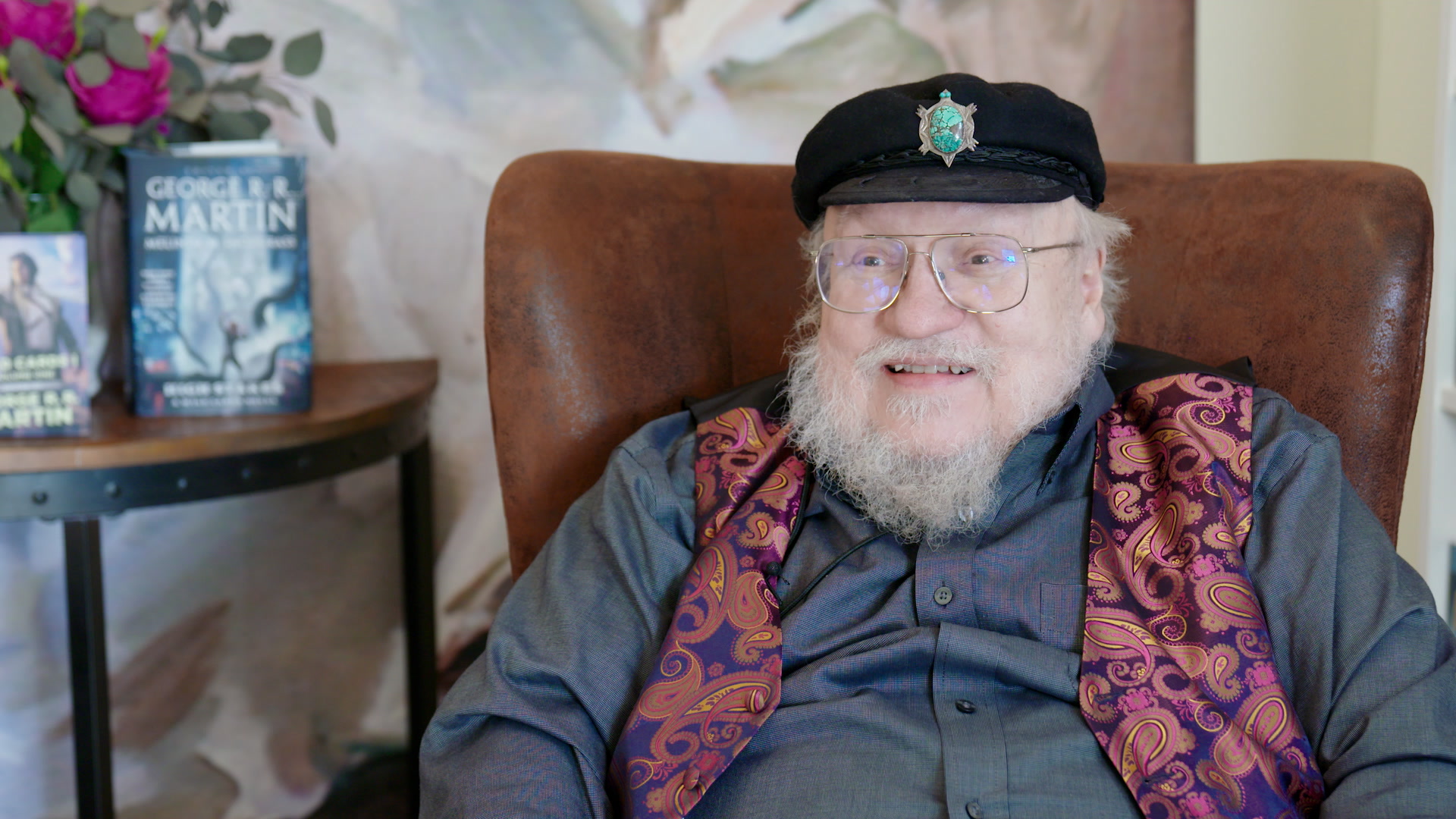George R.R. Martin, during the LA Special Screening of “Tolkien,” voiced a complaint that resonates deeply within the literary and cinematic communities. His critique isn’t new but has gained more relevance as Hollywood continues to churn out adaptations that often bear little resemblance to their source material.
Martin, known for his sprawling epic A Song of Ice and Fire, which was adapted into the immensely successful HBO series Game of Thrones, has long been a critic of the liberties screenwriters take with original works. His dismay is not isolated but shared among literary giants whose works span the genres and centuries—from Stan Lee’s superhero sagas to Charles Dickens’ Victorian narratives.

The Core of George R.R. Martin’s Discontent
In a detailed post on his personal blog, Martin reiterated his stance, emphasizing that the tendency to ‘make it their own’ has only worsened over time. This sentiment echoes his discussion with Neil Gaiman in 2022, where both authors lamented the Hollywood mindset that disregards the essence of the original works for the sake of cinematic innovation. Martin’s frustration is palpable as he notes, “No matter how major a writer it is, no matter how great the book, there always seems to be someone on hand who thinks he can do better.”
Quoting Martin, “The book is the book, the film is the film,” is a refrain used by filmmakers to justify deviations from the source material. However, Martin counters this by pointing out that while the mediums are different, the essence and respect for the original story should remain intact. He asserts, “They never make it better, though. Nine hundred ninety-nine times out of a thousand, they make it worse.”

A Glimmer of Hope in Adaptation
Despite his grievances, Martin acknowledges that not all adaptations are failures. He praises the recent adaptation of “Shogun” by FX, which is currently a frontrunner for an Emmy for drama series. Reflecting on his initial skepticism about revisiting James Clavell’s novel, Martin admits he was pleasantly surprised by the faithful and impressive execution of the new series. This adaptation, according to him, stands as a testament to how honoring the source material can result in a successful cinematic rendition that may even please the original author.
The Shared Sentiment with Neil Gaiman
During the 2022 conversation with Gaiman, Martin highlighted the oft-repeated phrase in adaptation circles: “I’m going to make it my own.” Both authors expressed their disdain for this approach, especially when it leads to a distorted version of the original work. Gaiman, who has seen his Sandman series undergo various transformations—often by those who have barely engaged with the core material—shared Martin’s frustration, indicating a broader issue within the industry.

Conclusion: The Integrity of Adaptations
George R.R. Martin’s candid discussion sheds light on a prevalent issue in Hollywood—the balance between creative freedom and fidelity to original works. His perspective invites audiences and creators alike to reflect on the value of staying true to the essence of original literature, even when it is being translated into a dramatically different medium.
As the industry continues to evolve, one wonders whether filmmakers will heed the call to respect the foundational narratives that inspire their adaptations, or if the allure of ‘making it their own’ will continue to dominate the landscape of film adaptations.
Source- Variety









